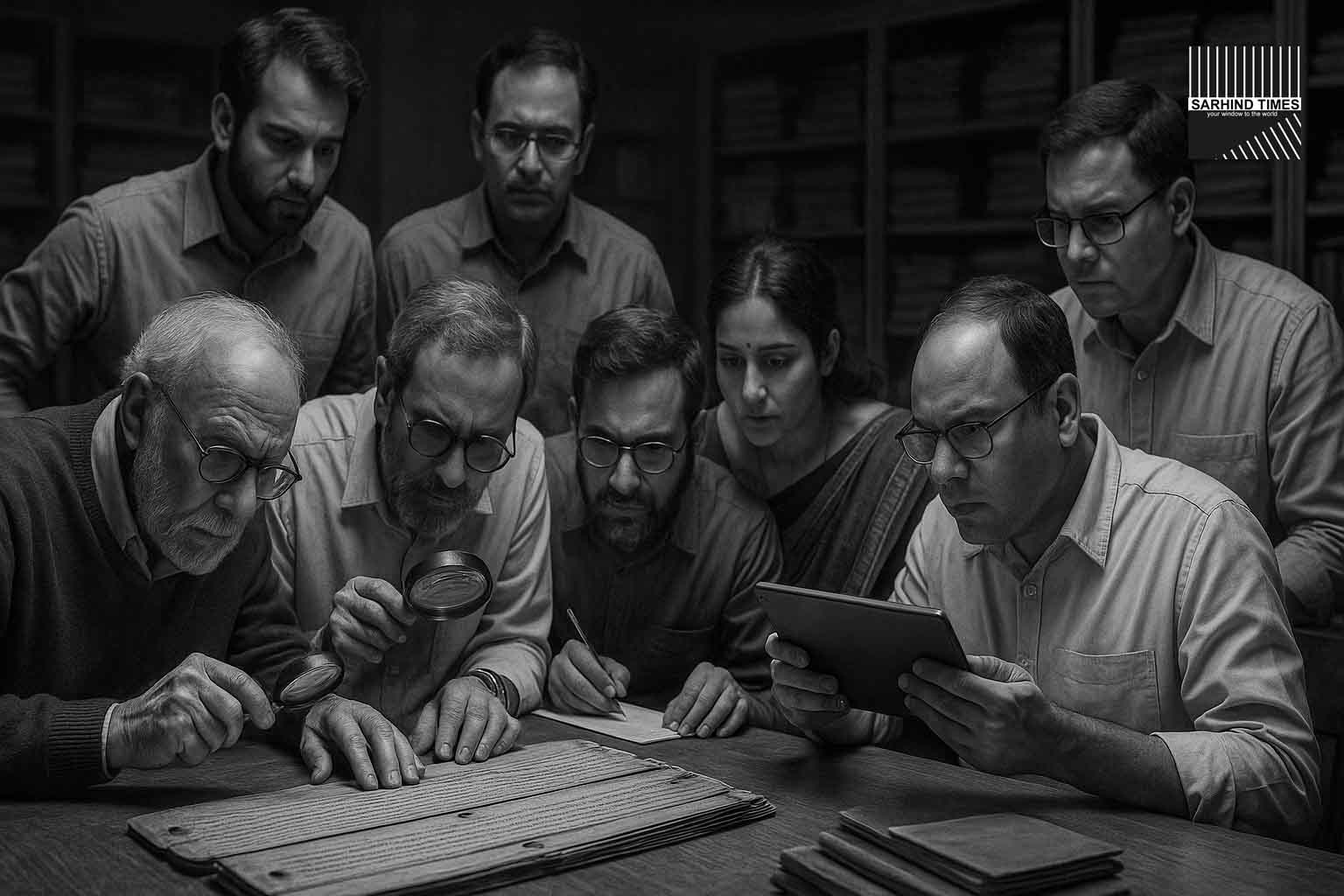Introduction: A Cultural Mission Begins
India’s ancient knowledge systems are stepping into the global spotlight as New Delhi hosts an international conference on manuscript heritage. The three-day event, titled “Reclaiming India’s Knowledge Legacy Through Manuscript Heritage”, opened today at Vigyan Bhawan under the national Gyan Bharatam initiative, announced in the Union Budget 2025–26. With participation from scholars, curators, private custodians, and conservation experts, the meet marks a major push to preserve, digitize, and promote the nation’s priceless manuscript collections.
The Gyan Bharatam Vision
The Gyan Bharatam project is a flagship cultural program aimed at systematically:
- Mapping India’s vast manuscript wealth, much of which remains undocumented.
- Conserving fragile collections vulnerable to environmental damage and ink decay.
- Digitizing rare works to ensure accessibility and longevity.
- Promoting India’s manuscript tradition as both a cultural heritage and a research resource.
The project positions India as a leader in heritage restoration while strengthening global academic collaborations in Indology, philosophy, science, and ancient literature.
A Global Gathering of Experts
Delegates at the conference include:
- Scholars and historians specializing in Sanskrit, Pali, Persian, Arabic, and regional manuscript traditions.
- Institutional custodians from universities and libraries in India and abroad.
- Private collectors who hold family treasures often hidden from mainstream access.
- Restoration experts working with technologies to repair fragile palm-leaf and birch-bark manuscripts.
By bringing diverse stakeholders together, the conference seeks to create a national roadmap for manuscript conservation with international collaboration.
Prime Minister’s Role
Prime Minister Narendra Modi is scheduled to attend the second day of the conference, where he is expected to highlight the government’s commitment to reclaiming India’s intellectual legacy. Sources suggest he will announce new funding allocations for conservation labs and digitization centers.
This aligns with the broader “Viksit Bharat” vision, where cultural preservation is seen not only as heritage work but also as a foundation for national identity and research-driven innovation.
Threats to Manuscript Heritage
Speakers on Day 1 underlined the multiple threats facing India’s manuscripts:
- Ink Decay: Ancient plant-based inks fade or corrode over time.
- Environmental Damage: Humidity, insects, and mold threaten palm-leaf and birch manuscripts.
- Neglect: Many manuscripts lie in personal collections without proper storage.
- Public Apathy: Limited awareness means these treasures remain undervalued in the digital age.
Conservationists stressed that without urgent intervention, thousands of manuscripts could be lost within the next two decades.
Why Manuscripts Matter
India’s manuscripts cover a staggering range of subjects—from Vedic hymns and Upanishadic philosophy to mathematics, astronomy, medicine (Ayurveda), music, architecture, and political science. Preserving them is not just about history, but about:
- Strengthening cultural identity by reconnecting with intellectual traditions.
- Expanding research foundations in science, medicine, and linguistics.
- Promoting global scholarship, as many texts are relevant to comparative studies worldwide.
- Reviving traditional knowledge systems that could inspire sustainable solutions for modern challenges.
As one speaker noted: “Every manuscript is a voice from the past. Losing them means silencing centuries of wisdom.”
Technology Meets Tradition
The conference has highlighted how modern technology is reshaping conservation:
- Digitization Projects using AI-driven text recognition for Sanskrit and Prakrit scripts.
- Climate-Control Storage units being planned for libraries across Rajasthan, Kerala, and Tamil Nadu.
- 3D Imaging to study ink, paper, and script without damaging the manuscripts.
- Global Databases to allow scholars worldwide to access India’s knowledge heritage.
Cultural Diplomacy Dimension
India’s initiative also carries an element of soft power. By positioning itself as a global hub for manuscript heritage, India strengthens its image as a cultural leader. Several international delegations—from Sri Lanka, Nepal, Iran, and European universities—are attending, reflecting shared interests in textual traditions.
Closing Thoughts: Heritage as Nation-Building
The launch of the Gyan Bharatam conference in Delhi is more than a cultural event—it is a call to reclaim and safeguard a knowledge legacy that belongs to both India and the world.
If the project achieves its goals, the manuscripts once hidden in dusty libraries and family chests may soon be reborn as digital resources, teaching materials, and symbols of India’s timeless intellectual tradition.
As the conference continues over the next two days, all eyes will be on the Prime Minister’s address and the roadmap that emerges—a roadmap that could redefine how India values and preserves its ancient wisdom.
#GyanBharatam #ManuscriptHeritage #CulturalPreservation #IndiaHistory #HeritageConference #Manuscripts #DelhiEvents #SarhindTimes




+ There are no comments
Add yours